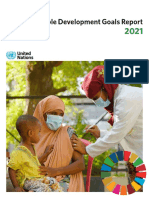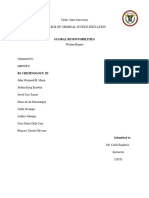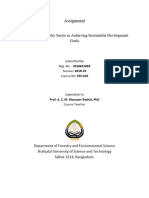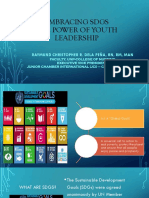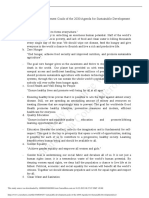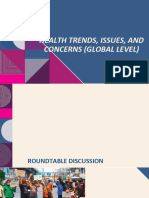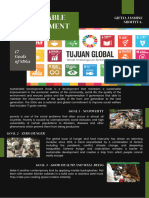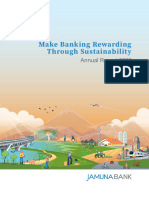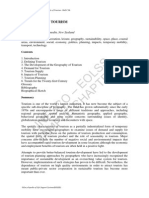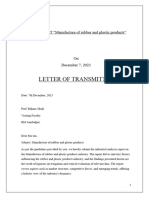0% found this document useful (0 votes)
25 views16 pagesFC Sem 2 Project
The document outlines the Sustainable Development Goals (SDGs) established by the United Nations in 2015, aimed at addressing global challenges such as poverty, inequality, and climate change by 2030. It details specific targets for various goals including clean energy, water and sanitation, quality education, and climate action, emphasizing the need for urgent and coordinated efforts to achieve these objectives. Additionally, it highlights India's progress in monitoring and ranking the achievement of these goals through the SDG India Index.
Uploaded by
athuraut2708Copyright
© © All Rights Reserved
We take content rights seriously. If you suspect this is your content, claim it here.
Available Formats
Download as PDF, TXT or read online on Scribd
0% found this document useful (0 votes)
25 views16 pagesFC Sem 2 Project
The document outlines the Sustainable Development Goals (SDGs) established by the United Nations in 2015, aimed at addressing global challenges such as poverty, inequality, and climate change by 2030. It details specific targets for various goals including clean energy, water and sanitation, quality education, and climate action, emphasizing the need for urgent and coordinated efforts to achieve these objectives. Additionally, it highlights India's progress in monitoring and ranking the achievement of these goals through the SDG India Index.
Uploaded by
athuraut2708Copyright
© © All Rights Reserved
We take content rights seriously. If you suspect this is your content, claim it here.
Available Formats
Download as PDF, TXT or read online on Scribd
/ 16











